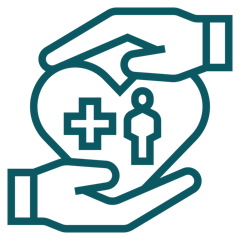If you are a student in an undergraduate or graduate public health program, you have likely heard of the CHES exam. But what does that stand for? And how will it help your public health career? The Certified Health Education Specialist (CHES) exam is a national certification test that reflects one’s comprehension in health education practice. The exam measures the possession, application, and interpretation of knowledge in the 8 areas of responsibility for the health ed specialists1. People who obtain the CHES certification have a competitive edge in the job market3.
The CHES exam is administered by the National Commission of Health Education and Credentialing, Inc., or for short NCHEC1. NCHEC was founded in 1988, and is a nonprofit, tax-exempt organization which creates and administers national competency-based examinations to entry and advanced-level health education specialists1. The organization is dedicated to sustaining the highest level of competence in the health education workforce. NCHEC administers two exams: CHES and MCHES, which stands for Master Certified Health Education exam. Both certifications are the national and international standard for the health education workforce, who work at both the entry and advanced levels. For purposes of this article, we are focusing on the CHES exam, which individuals should and who should not consider sitting for this exam, and review some helpful study tips from previous test takers1.
The CHES exam is offered in the United States and internationally. Candidates can take the exam via computer-based format or through Live Remote Proctoring from the comfort of your home. The Exam is offered in both the spring and fall (April and October) for a period of ten days1.






